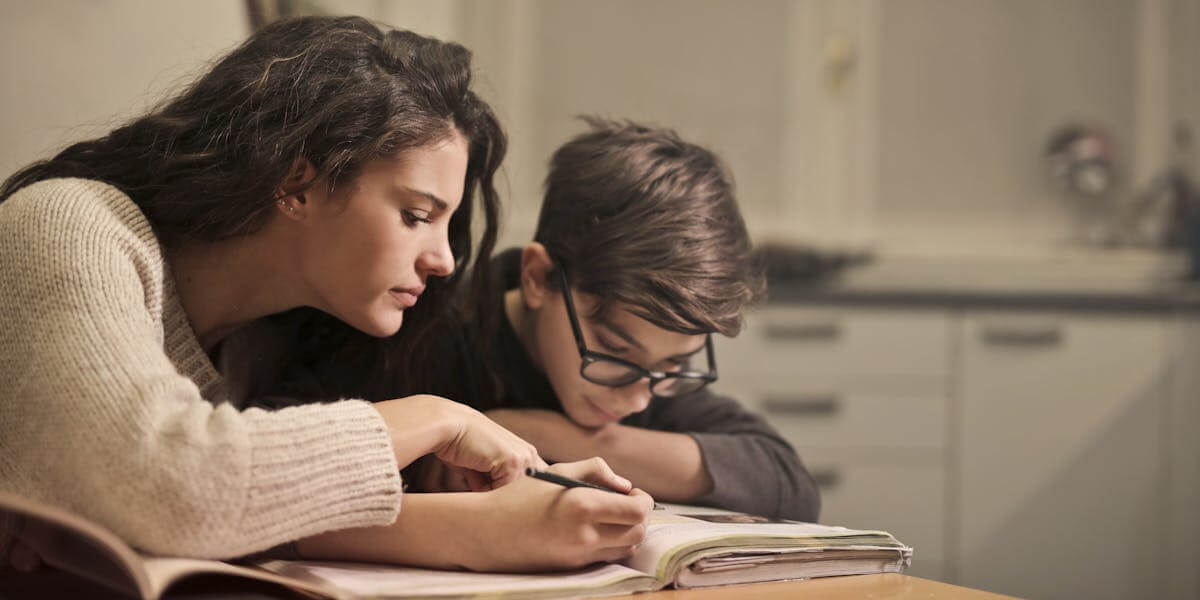Is there anything different??
As all parents know, each child is unique and special, no matter how they may have arrived in our family. Each has their own personality, each has their own special way of communicating, and each has their own way of expressing their emotions and feelings.
Making the decision to become a family by having children join a couple – whether through pregnancy and birth, or through the challenge and beauty of adoption – is one of the most special enhancements a couple can make during the course of their marriage.
But some have raised the question of whether there is a difference in how children are affected during a divorce, depending on whether they are natural born children or adopted children. What happens if the couple decides to terminate their marital relationship? Does how the children joined the family impact how they are affected during the divorce? The answer is both yes and no.
Legally, there is no difference in how a child is treated during a divorce, no matter if the child is born to a couple or adopted by a couple. Once a child is a part of your family, either by birth or adoption, that child is your child forever. The legal process of divorce requires that each child be accounted for with respect to custody, with respect to visitation or periods of residency, with respect to support and medical insurance, and all of the other things that go along with providing for children. All children are treated the same under the matrimonial laws, and the same issues must be addressed for each child regardless of origination.
So, why has this issue arisen? And how can the answer above be both yes and no?
No, there is no difference legally. Yes, there can be a difference in impact and thus, there are some special considerations parents should be keeping in mind when going through a divorce with children that were adopted, particularly with respect to children adopted at older ages or if they are special needs children.
Children adopted as infants, who do not know any other home environment, may experience the typical feelings natural born children do when their parents go through a divorce – loss, grief, fear, guilt, displaced alignment with one or the other parent, concern for their future and more. These issues require sensitivity to the children’s feelings and emotions, regardless of their arrival origin into the family. Children often do not have the emotional tools to cope with the strong feelings that are associated with parents divorcing. So, parents should work with the child and incorporate any necessary professionals to assist the child with coping, and to learn the right tools to communicate effectively and appropriately for their age. These are steps parents would take whether the children are adopted or natural born.
Children adopted at older ages – who remember being in foster or temporary homes and who have memories of life before their forever home – have additional issues that parents should be extra sensitive of. It is not uncommon for a divorce to trigger the feelings of loss and abandonment the child felt before adoption. It is not uncommon for children adopted at older ages to have an increased fear that they will be “returned.” After all, their biological parents abandoned them, perhaps their “forever” parents will, too. Sometimes, events that occur to their family, such as a separation or divorce, trigger tremendous, often heightened guilt – that the divorce is the adopted child’s fault; that it’s caused by the adopted child and now it’s affecting the other children, and it’s their fault, too.
It is not unusual for adopted children to have attachment issues, whether the adopted parents are divorcing or not. Attachment issues can present in a variety of ways, but an impending divorce can exacerbate the reactions in adopted children. So, careful assessment of each child’s stability and feelings will be necessary, as most parents do anyway. Maintain vigilance around this issue – not all reactions to major life changes happen right away. It might be months or longer before issues emerge. Just be ready to support and assist the child, whether adopted or natural born, no matter when it occurs. Also, every child does not react the same way, so be aware of the different personalities of your children, their coping strengths or weaknesses, and be ready to step in to help as needed.
Children who have been adopted at older ages sometimes have an unrealistic view of what a “family” means, of what “forever” means, of what a stable home environment means. When the “family” structure they think of in their minds is threatened by an impending divorce, it can cause such a panic that they don’t know where to turn, who to trust or who to go to with those feelings – often not wanting to “burden” either parent with their own issues.
Children who have been adopted sometimes feel that they are different from their siblings or peers — that the adoption makes them “not normal.” Add to that the divorce factor, and the child’s sense of self plummets even more – not only are they different because they are adopted, but now they are different because their parents are getting divorced. Adults understand the impact peer groups have on children and their own self-esteem, feeling like they belong, that need to be validated by others in their own social groups. The “double whammy” of adoption and divorce can tip the scales for successful coping, so parents should be especially sensitive and watchful for issues to arise or resurface that are unique to adopted children.
There are steps you can take to ameliorate the impact of divorce, and they are common sense. Most divorcing parents do these things quite naturally.
First, agree with your spouse to establishing co-parenting parameters, with the children as the focus. Co-parenting is something many parents struggle with, even in intact families, so seek outside assistance if this is hard to do because of your own feelings and anger. Keeping the adult issues away from the children by developing and sticking to a co-parenting plan is one of the first steps to take, no matter what stage your divorce is.
Next, agree with your spouse to put the child’s or children’s emotional needs above your own, and even more, maintain some stable elements in the child’s life for an extended period of time. If a child’s parents are splitting up and they have to move, change schools, adjust to not seeing both parents each day, leave their friends, see their mom and dad act different, and meet new people who are in the adults’ lives, taking attention and focus away from the kids – well, that’s a lot to cope with. But for a child, especially an adopted child it’s a recipe for disaster. So if possible, don’t change everything in the child’s life right away. Make small changes, give it some time for the child to adjust before making the next change.
A planned and thoughtful way through the separation and divorce process will help not only the adults cope better, but will also help the children cope better. After all, while the adults are the ones divorcing, it is the whole family who is going through the process of separating a once stable unit. Taking small steps, communicating often and listening well, offering as much love and support as you can, and then offering some more, gaining the assistance of professionals as much as is needed and presenting a united parental front to assure the children that they are not the reason for the separation will not only help the adults cope with divorce, but will also help the children and set a good example for them to learn how to appropriately deal with the major life changes, which will inevitably challenge each of them.
Divorce is a loss, and a period of grief is to be expected. But you can show your children – natural born or adopted – how to take positive steps, how to learn to live successfully in separate households and how to cope with major life changes, all while maintaining the love and respect you have for each child. It’s a lofty goal, true, but achievable and the best step you can take for your child.
Christine F. Redfield, Esq. is a Senior Associate at Tully Rinckey PLLC’s Rochester office. She focuses her practice on family and matrimonial law, including divorce, child custody, child support and orders of protection.






